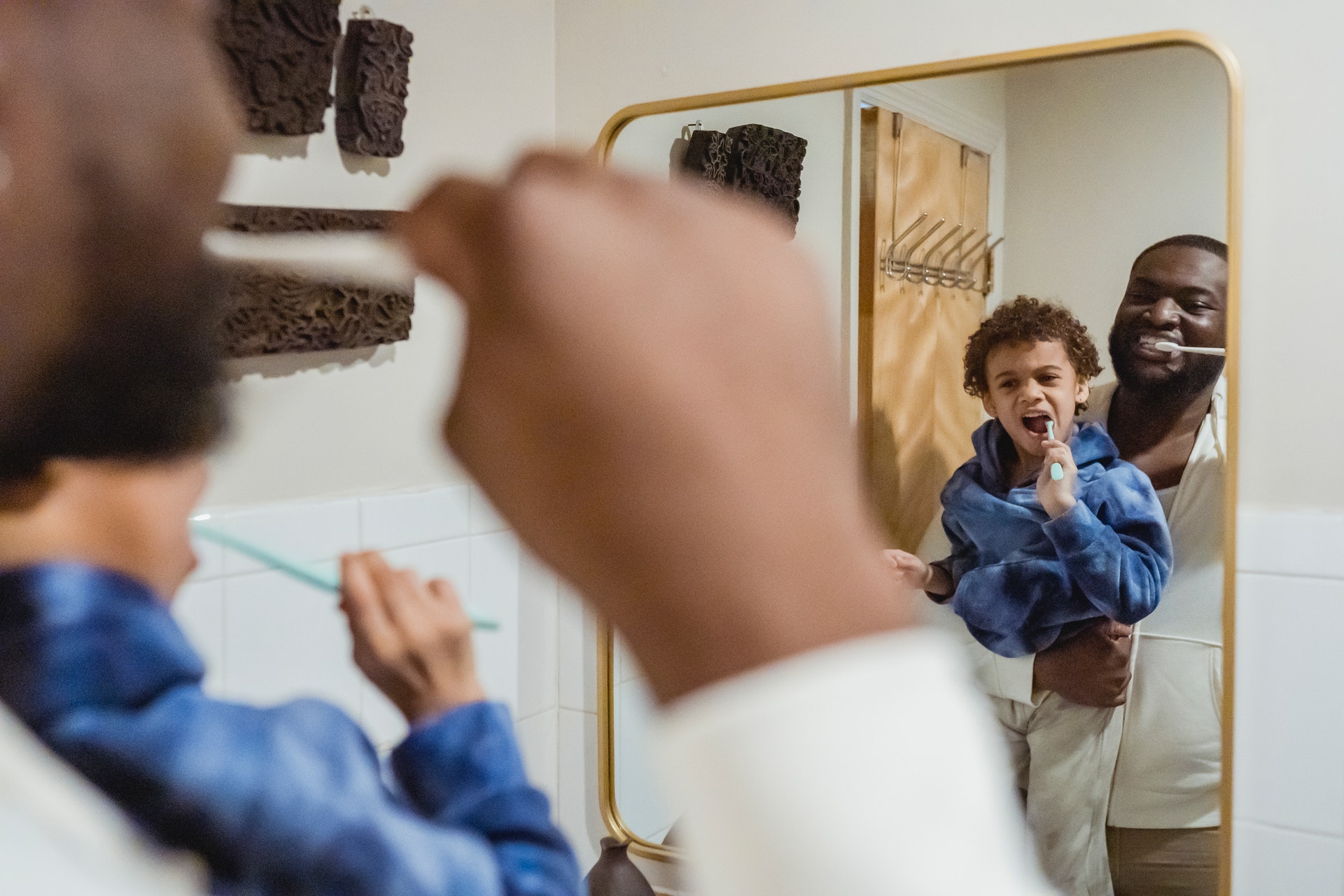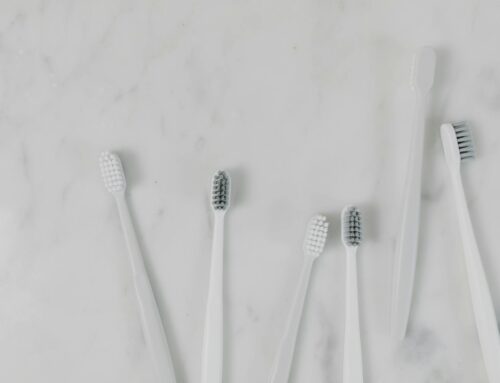New technology may result in a robotic micro-swarm of nanoparticles being capable of acting as a toothbrush, mouth rinse and dental floss all in one! This technology has been tested, with researchers being able to evidence its effectiveness at killing bacteria and cleaning dental plaque. Essentially, the technology would provide automated brushing and flossing, meaning a person would not need to lift a finger to brush their teeth!
A new study has sought to evaluate the relationship between free sugar intake in early childhood and the development of cavities. Many people unknowingly have diets high in free sugars.
While it may seem scarcely believable at the moment, recent research suggests that a robotic micro-swarm could be capable of acting as a toothbrush, mouth rinse and dental floss all in one [1]!
The research has led to the creation of technology that could result in an automated way to perform brushing and flossing [1]. For those who struggle with brushing their teeth, such technology could revolutionize their oral health.
Interestingly, unlike the majority of fields in healthcare, in dentistry, the design of a toothbrush has largely been the same in recent decades. But the proposed new technology could dramatically change this.
Brushing teeth: The current picture
Whilst most know the importance of brushing our teeth and flossing, we can all attest to the fact that it is a rather mundane task. Therefore, any automated process would be very popular.
Despite its importance, not everyone brushes their teeth the recommended 2 times per day. For example, in the United Kingdom, research shows that almost a third of British adults fail to brush their teeth twice a day [2].
Moreover, getting children to willingly brushing their teeth can be difficult. Research in 2020 showed that 72% of American parents struggled to get their children to brush their teeth [3]. When a person doesn’t brush their teeth in childhood, they may get into poor oral habits in adulthood.
Common reasons given for not brushing teeth include finding it boring, not having the time, underestimating the importance of cleaning teeth and forgetting. Then there are those that struggle to clean their teeth due to disabilities.
For those that don’t brush their teeth regularly – cavities, infections, gum disease, bad breath and jaw pain are all common consequences. Emergency dental visits often become commonplace.
But ultimately, it is important to remember just how important regular brushing is. After all, we need our teeth to perform simple, yet crucial, tasks like eating and chewing. Any technological improvement could result in more people brushing their teeth.
How would the technology work?
The research was completed by a team at the University of Pennsylvania (UPEN), United States. They published their findings in the journal ACS Nano [1].
The researchers had a background in nanoparticles, and were interested in seeing if these nanoparticles could cause an antimicrobial effect in association with brushing – with this being done in an automated way [1].
In practice, this would work by a person having a robotic micro-swarm of iron oxide nanoparticles being placed in the mouth [1]. These micro-robots would be made from iron oxide nanoparticles that are magnetic.
The researchers were able to use these magnetic qualities to implement a magnetic field in the technology [1]. This allowed researchers to direct the motion and configuration of the swarm – helping to form a bristle-like structure that was capable of effectively cleaning teeth and dental plaque.
Furthermore, the technology was also capable of forming a string that could act as a floss – penetrating those hard to reach areas in-between teeth [1]. Therefore, as well as regular cleaning, the technology could also act as a floss.
Moreover, researchers also used what is called a catalytic reaction in their technology. This involved the nanoparticles producing antimicrobials that were capable of killing bacteria in the mouth [1].
The researchers tested their micro-swarm on fake and real human teeth. The findings were very positive – with the researchers finding that the micro-swarm was able to clean the plaque and bacteria that would typically result in cavities and gum disease [1].
How this technology would help
Such technology would be brilliant for dentistry. It is important to remember that not everyone has the motor skills to clean their teeth properly. Then there are those who clean their teeth twice a day, but have a poor technique. Also, there is a sizeable amount of people who don’t brush twice a day.
All of these people could benefit from such technology. Using this technology would surely result in better oral health for the public. It would mean cleaning our teeth would be much easier, and it would be useful for children too.
Hyun Koo is a Professor at UPEN’s School of Medicine, and helped author the study [4]. He commented on the findings, saying that “routine oral care is cumbersome and can pose challenges for many people, especially those who have a hard time cleaning their teeth” [4].
Continuing, Koo said “you have to brush your teeth, then floss your teeth, then rinse your mouth; it’s a manual, multi-step process. The big innovation here is that the robotics system can do all three in a single, hands-free, automated way” [4].
Another author mentioned that nanoparticles could form bristles that can “extend, sweep, and even transfer back and forth across a space, much like flossing. The way it works is similar to how a robotic arm might reach out and clean a surface” [4].
Furthermore, those with misaligned teeth can also benefit, with the system able to – in the researchers words – “adjust to all the nooks and crannies in the oral cavity” [4]. This underlines the effectiveness and adaptability of the technology.
Many clinical trials would be required for such technology to be rolled out to consumers. But hopes are high for the future, and such technology would allow many people to take care of their oral health in an improved way.
Thinking points…
1) Such news is very exciting! But while such technology will benefit us in the future, for now we will continue to use current equipment. It is very important to brush our teeth twice a day, floss – and most importantly, attend regular dental check-ups. By seeing your dentist regularly, they can examine your overall oral health, and recommend treatment if needed. We recommend booking an appointment soon!
2) In this article, we mentioned about how some people brush their teeth regularly, but do not have a good technique. If you are worried about your toothbrushing technique, it might be worth having a discussion with your dentist. They will be able to provide advice on your technique, and could introduce small changes that would have a big difference. Consider contacting them soon!
What we offer at Taradale Dental
Taradale Dental is a Calgary dental clinic that provide its patients with a range of treatment options and advice aimed at improving oral health.
It is crucial to brush your teeth at least twice a day and to floss regularly. Moreover, eating healthily and trying to avoid sugary foods and drink is important.
We advise our patients to attend our Calgary-based dental clinic twice a year for a regular dental check-up. When problems are detected, we have many treatments available. For instance, these include cavity fillings and root canals.
Here at Taradale Dental, we also have some cosmetic treatments available! These include dental implants, tooth whitening and Invisalign™! Many people find that these treatments have a positive impact on their appearance, confidence and self-esteem.
In addition, all of our services at our Calgary dental clinic Taradale Dental are in line with the Alberta Dental Fee Guide.
We would love you to visit our Taradale Dental clinic in Calgary! You can find out more about us by visiting our website https://taradaledental.ca.
References
[1] Oh, M. J., Babeer, A., Liu, Y., Ren, Z., Wu, J., Issadore, D. A., Stebe, K. J., Lee, D., Steager, E., & Koo, H. (2022). Surface Topography-Adaptive Robotic Superstructures for Biofilm Removal and Pathogen Detection on Human Teeth. ACS Publications. (Pre-publication issue). DOI: https://doi.org/10.1021/acsnano.2c01950.
[2] Evans, S. (2018). A third of British adults skip brushing their teeth twice a day. Available: https://dentistry.co.uk/2018/05/23/third-british-adults-skip-brushing-teeth-twice-day/. Last accessed: 8th July 2022.
[3] Delta Dental. (2020). The 2020 State of America’s Oral Health Report. Available: https://www.deltadental.com/content/dam/ddpa/us/en/press-releases/The%202020%20State%20of%20America%27s%20Oral%20Health%20Report%20VF.pdf. Last accessed: 8th July 2022.
[4] University of Pennsylvania. (2022). Shapeshifting microrobots can brush and floss teeth. Available: https://www.eurekalert.org/news-releases/957949. Last accessed: 8th July 2022.




[…] New Technology May Result in a Robotic Micro-Swarm of Nanoparticles Being Capable of Acting as a Toothbrush, Mouth Rinse and Dental Floss All in One! […]